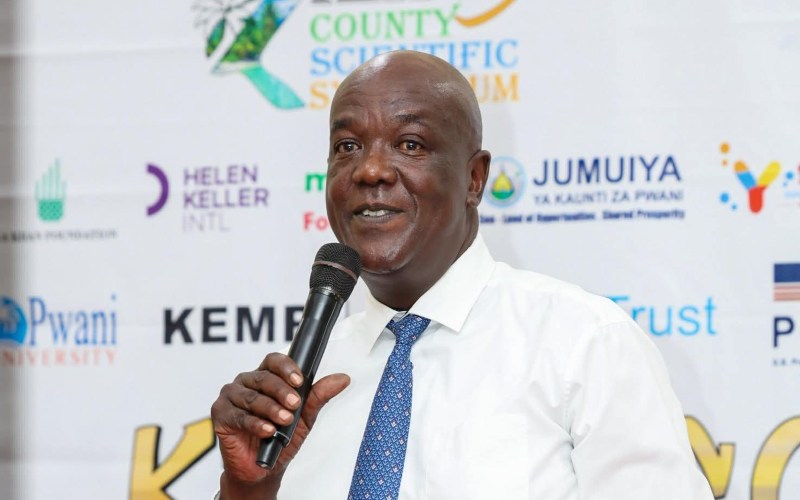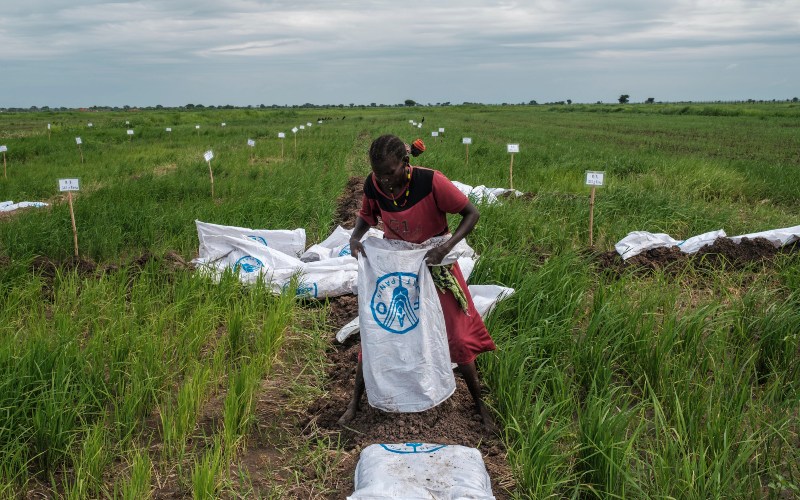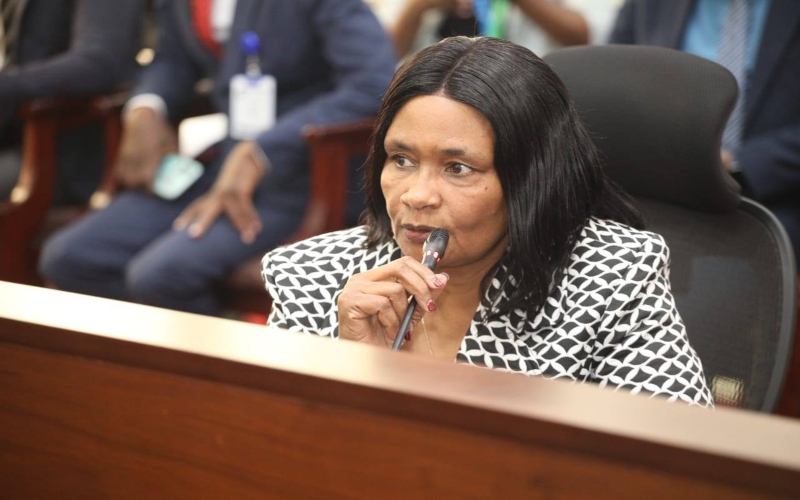Ministry of Education addresses missing exam papers in KJSEA rollout

Education PS Julius Bitok says all missing papers have been replaced, exams are running smoothly, and new smart digital padlocks are securing KJSEA containers nationwide.
The Ministry of Education has moved to address cases of misplaced or misdelivered examination papers to ensure that all eligible candidates sit their papers without disruption during the ongoing Kenya Junior School Education Assessment (KJSEA).
Education Principal Secretary Julius Bitok said that a few isolated incidents reported in some centres were swiftly resolved by the Kenya National Examination Council (KNEC), allowing the assessment to proceed smoothly nationwide.
More To Read
- How Grade 10 learners will be placed in senior schools using eight-point assessment system
- KNEC to launch senior school assessment hubs ahead of Grade 10 CBE rollout
- How to check school your child has been placed in before release of KJSEA results
- KNEC warns parents over social media scams to alter KCSE, KJSEA scores
- Teachers to stay in same schools after promotions under new TSC policy
- KNEC CEO David Njengere summoned over failure to release withheld KCSE result
Speaking on Tuesday in Kajiado North Sub-county after overseeing the opening of an examination container, Bitok said the inaugural KJSEA had entered its second day positively, with reports showing that both the Kenya Primary School Education Assessment (KPSEA) and KJSEA were progressing well.
“We had a few minor hitches yesterday in some centres where a few papers were missing, but KNEC moved quickly to ensure that every centre had adequate materials. The process is running smoothly,” he said.
The PS, who also monitored assessments at Ngong Township Comprehensive School and reviewed Kenya Certificate of Secondary Education (KCSE) preparations at Enoomatasiani Girls High School, said the government had deployed enough personnel and logistics to secure the examinations from irregularities.
“We have assembled a multisectoral team that is working around the clock to ensure the exam is administered professionally by eliminating opportunities for those who may want to indulge in cheating and other malpractices,” he said.
He commended education officials, security personnel, and examination administrators for their professionalism and commitment, noting that early challenges had been addressed. Bitok urged all officers involved to stay alert and report any irregularities immediately.
Vigilance
“We are encouraging all our stakeholders, if they see anything unusual, to report it immediately. Vigilance is key to maintaining integrity and ensuring fairness for every learner,” he added.
Bitok said the government had strengthened examination security by piloting smart digital padlocks that transmit real-time data whenever exam containers are opened or closed.
“With these innovations, we expect the results to truly reflect learners’ performance. The inaugural KJSEA is on course for credible completion, and we are confident that every learner will transition smoothly to the next level on account of a genuine grade,” he said.
The national assessments began on Monday with a few logistical issues in some counties, including missing papers and registration challenges.
In Trans Nzoia County, County Director of Education Pamela Akello confirmed that some candidates who had properly registered were initially missing from the official lists. However, after verification with KNEC, they were cleared to proceed.
“In some schools, the candidates’ names were on the nominal roll, but their papers were missing. We immediately contacted KNEC, and they authorised the schools to allow the affected candidates to write their answers on extra papers. These are isolated and non-regular cases, and we have ensured that no child is disadvantaged,” Akello said.
The affected schools included Matisi Comprehensive School, Kitale Education Centre, Central Comprehensive School, Chebukaka, and Mulembe Comprehensive School.
Across the country, more than 2.4 million Grade Six and Grade Nine learners are sitting for their transition assessments, marking a key milestone in implementing the Competency-Based Education (CBE) system.
According to KNEC, over 3.4 million learners have been registered for this year’s national assessments, spanning primary, junior, senior, special needs, and pre-vocational levels. Of these, 1.3 million are sitting the inaugural KJSEA.
Education Cabinet Secretary Julius Ogamba praised the increased participation, saying it reflects the government’s commitment to inclusivity and retention under the new curriculum.
“This growth reflects the continued success of our efforts in expanding access, inclusivity, and retention under the Competency-Based Education framework,” Ogamba said.
He added that the ministry had enhanced security and introduced digital innovations to promote transparency and accountability.
“For the first time, KNEC is piloting smart digital padlocks in 250 examination storage containers nationwide. These locks are linked to the KNEC Command Centre, allowing real-time tracking of when each container is opened and closed,” he said.
Despite these measures, some logistical challenges were recorded. In Endikir School, Kajiado County, exam materials arrived late on Monday, forcing learners to start their papers in the afternoon. Officials have since assured that all affected candidates will complete their papers and catch up with their peers.
In Kasarani, Nairobi, two Grade Nine candidates at Shining Hills School missed their exams after failing to be registered on time. Their parents blamed the school for not taking timely action despite repeated assurances.
As the multi-level assessment enters its second day, officials have urged calm and cooperation among all stakeholders.
The government expressed confidence that the assessments will conclude smoothly and credibly, ensuring fairness and integrity for all learners across the country.
Top Stories Today













































